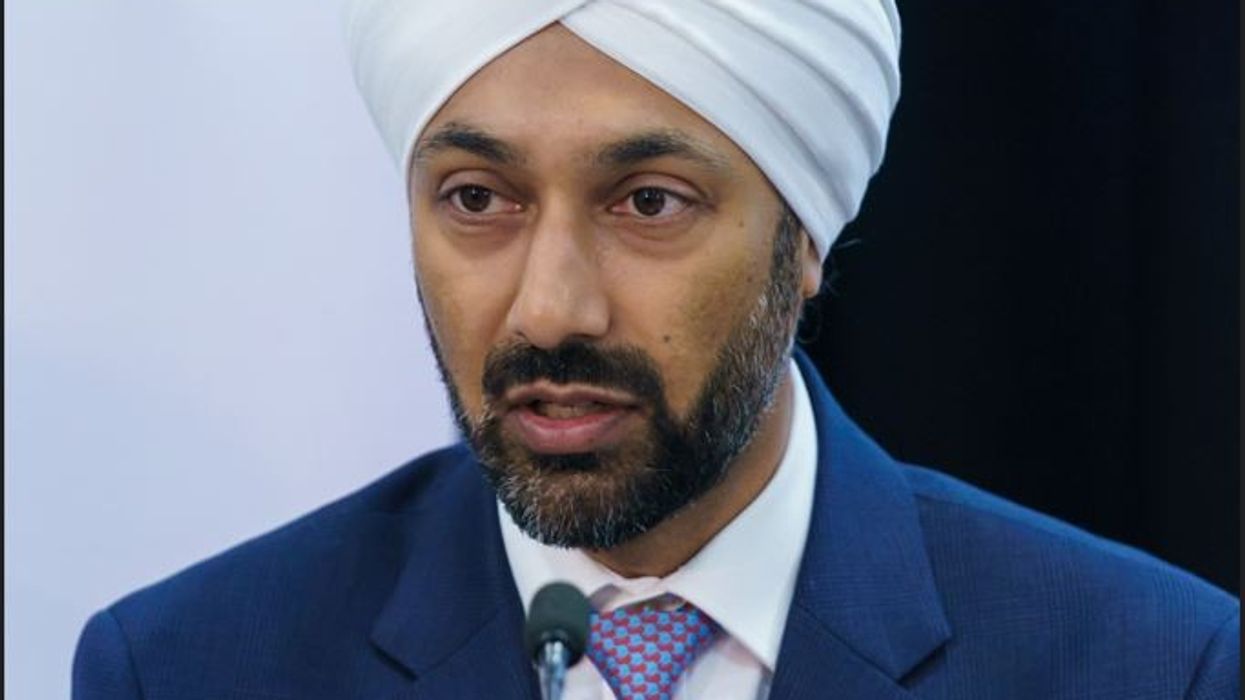Newly appointed member of the House of Lords, Kulveer Singh Ranger, told Eastern Eye he will use his position to leverage his expertise in transport and technology and help deliver better public services.
Ranger was last Friday (9) rewarded by former prime minister Boris Johnson in his resignation honours list, which came hours before the latter stepped down as an MP for Uxbridge.
Ranger, 48, was a former director of transport under Johnson when he was mayor of London. The British Sikh is currently senior vice-president, head of strategy, marketing, comms & public affairs at Atos, which is a global leader in digital transformation. “I’ve been very fortunate over the last 25 years to work in the areas of transport and technology, particularly in and around the public sector, and how innovation can help deliver better public services,” Ranger told Eastern Eye.
“We’ve all seen a huge leap forward from where the world was to where we are now and that’s driven by innovation in technology. I think that’s fantastic. But the critical part to it is how do we make sure that everybody gets taken forward with this tidal wave of acceleration. How do we ensure it benefits everyone, that’s the challenge, both for people to understand what technology can do, but also to feel that they have some vested stake in it, that it’s something they can control and not something being done to them,” he said.
“As I take my place in the House of Lords, that’s really going to be one of the fundamental things that I’m going to look at.” The resignation honours list is a tradition that gives outgoing prime ministers the opportunity to nominate people for honours. The list, approved nine months after Johnson resigned as prime minister, included 38 honours and seven peerages.
Ranger felt that the diversity of the House of Commons and the House of Lords showcased the “modernisation” of British politics. “Modernisation of politics, not just of the Tory party, but all parties, has been happening over the last couple of decades. You just have to look at our prime minister, our foreign secretary and many other people who’ve sat around the Cabinet table in recent years - people from Asian and diverse and black backgrounds,” he said.
“Change has happened, but it needs to continue to happen. I’ve always played a role in the Conservative party. I was one of the youngest vice-chairmen of the party. I’ve fought general elections and been involved inside the party itself.
“I will continue to help drive change, drive understanding, drive acceptance. We’ve been well on that path plan and I’m really keen to make sure that that continues.”
However, the Conservative party has been blighted by accusations of racism, including Islamophobia. Research by the anti-fascist group Hope Not Hate identified 13 Tory councillors who have been suspended over racist comments and social media posts in the past four years before being reinstated.
In April, five of these councillors standing for local elections were suspended for alleged racism and Islamophobia in recent years – including one who suggested banning mosques and another who accused Muslims of being on a “quest to turn the world Muslim”.
There were even accusations that race played a role in last summer’s Tory party leadership contest when Liz Truss beat Rishi Sunak to become prime minister.
“I would say I don’t recognise that at all,” said Ranger. “I saw the campaign, I saw what was happening, I saw the policies. I never heard of anything like that in the party.
“I’ve been around a very long time in our party. I didn’t recognise that (racism) description of our party. In the end, he (Sunak) is the leader of the Conservative Party, he is prime minister and none of that has ever been mentioned since then either. I don’t recognise that. I think our party is above that.” Asked about some of the language used by home secretary Suella Braverman in her campaign against illegal migration, such as using words like ‘swarms’ and an ‘invasion’ when describing refugees, Ranger said the focus should be on her work rather than her words.
“It’s not about the rhetoric. It is about getting a message through to those people who are organising this type of illegal immigration, that they will not find it easy, that there is a strong political will and belief to stop them. I think that’s what she’s trying to demonstrate,” said Ranger. In regard to his long-term ally, Johnson, Ranger warned the former prime minister’s detractors not to write him off.
“I’ve worked with Boris Johnson." I know him, personally. Many people say he is an absolutely unique politician. Yes, he can be like Marmite to a lot of people, but I’ve learned over the years to never write off Boris Johnson in a political capacity. “He can generate amazing amount of political capital. And anyone who can do that has probably always got something they can add to public life.”




